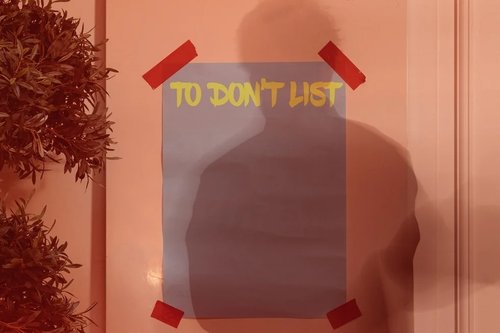The ins and outs of why recruiters ghost you
Oct 04, 2023
7 mins


Freelance writer, reporter
The bane of many job seekers’ existence is often an unresponsive recruiter. It can be extremely frustrating to not hear back after putting time, effort, and thought into filling out applications, crafting cover letters, contacting hiring managers, and participating in interviews. Despite communication and transparency being keywords of utmost importance to American workplaces today, the issue of recruiters “ghosting” remains all too common for people job hunting across the globe.
Ghosting can be defined as the act of suddenly cutting off all contact with someone without a hint of explanation. Perhaps this could be ignoring phone calls, not replying to texts, or dropping communications in another form. Usually, this term is used in reference to a former romantic partner. When it comes to recruiting, ghosting doesn’t refer to not responding to an individual who simply applied to a role—it refers to dropping contact with someone who was contacted about the job and in the midst of the hiring process. And it has created a negative stigma that good recruiters must put up with.
Approximately 77% of job seekers, according to a 2021 study by Indeed, say they have been ghosted by a prospective employer since the onset of Covid in 2020, with 10% of those people stating that an employer even ghosted them after a verbal job offer was extended. We’re cutting to the chase to figure out why recruiters ghost candidates in the first place and what can be done to eliminate this frustrating element from the job-hunting experience.
Why recruiters ghost candidates
As Darley Coby, senior talent partner at Fitch Group, Inc., puts it: “The bulk of people seem to think that recruiters don’t care and that they lack empathy. It’s possible that some do have poor etiquette, but usually, it’s an issue of time management or responses falling through the cracks. It definitely does not commonly happen intentionally or with malice.”
Indeed, poor time management is a big reason some job seekers might find themselves not hearing back from recruiters. When a recruiting team is facing a high volume of applications, it can be a sincere struggle to find the capacity to send out a message to everyone who interviewed for the role—and it can be all too easy to become disorganized and drop the ball on things. This is especially true for recruiting teams that lack resources or workers. “Sometimes we get bogged down and we’re chasing down hiring managers or waiting for intel before offering a candidate an update,” Coby says. “So, it might seem like we’re ghosting you, but it’s really just that the process is stalled, and some cadence is misaligned.”
Sometimes, because many recruiting professionals (especially agency ones) are performance-based, they might choose to not take the time to communicate with candidates properly, according to Coby. “They’re looking instead at how many phone screenings they had, how many candidates they interviewed, how many of them got hired,” he explains, “The firms are not rating them on communication skills, so they are not devoting time on the side to communicate properly with candidates.” Perhaps organizations should be more proactive about training recruiters in communication and time management.
Agency versus corporate recruiters
When it comes to any conversation about the recruiting space, it’s important to distinguish agency recruiters from corporate recruiters. The former work at recruiting firms and are charged with finding candidates to match jobs for certain companies. They usually do a lot of cold calling and often work on commission. Because of these aspects of their jobs, they’re likely to stop replying to job candidates as they are not focused on building relationships with them. Corporate recruiters, meanwhile, work internally to fill available positions at their workplaces and thus are interested in building relationships with the applicants they come across. They’re more likely to be responsive to job candidates because there is more of a long-term relationship there, plus they’re probably more invested in who gets the role.
“Agency recruiting is a noble task because you get some strong subject matter experts, but at the end of the day their job is dependent on placements and making revenue,” Michael Masek, talent acquisition partner for DaVita Kidney Care, explains. “And so, it’s like sales in that aspect. Plus, agency recruiters are in competition against other agencies, so they are trying to be first and might sacrifice a bit of quality work in order to win. Whereas I’ve been an internal recruiter, so I’m still going to be there when the person is hired. I’m ingrained in the company; people have trust in me to hire the right candidate and my decision could really affect the company.”
In the end, Masek says there is more care and dedication put into filling positions when the recruiter is aligned with the company. “I’m not saying that can’t happen in an agency environment, but it’s rarer there since you’re more focused on competition and speed,” Masek says. “Ultimately, there are some recruiters that see the money in it, and then there are others that really want to create positive candidate experiences and be involved in the direction that they’re headed and the culture that they’re building.
How to avoid getting ghosted during the hiring process
There are things job hunters should be aware of as they develop contact with recruiters during their search for employment. Perhaps one red flag to watch out for with recruiters is poor communication, like a lack of any responses after initial contact about a job opening. When it comes to trying to stay in touch with every candidate, Masek says the job is all about communication and transparency. “One of the reasons I became passionate about recruiting is because of the flaws of the interview cycle,” Masek says. “Ghosting is definitely one of the big flaws. And transparent communication is key to avoid that sort of thing.” Masek says simply interacting honestly is important, whether that means letting people know if there is going to be a delay or keeping in touch with them through periods of waiting, so they don’t feel clueless or ignored. A candidate might want to reconsider which recruiter they are working with if they do not experience this type of clear communication.
Coby adds that setting expectations goes hand in hand with communication and transparency in the field of recruiting; job candidates should initially hear from recruiters to get a sense of the timeline of the hiring process and when they might hear back from them next. And Masek notes that there should always at least be a stock message that goes out when a job opening is closed, so that candidates know they are no longer under consideration. “And personally, I always tell candidates that they can feel free to schedule time with me if they want to talk about it,” Masek adds. Following up with the recruiter at any point in the process—without seeming desperate—will help you maintain visibility while keeping your profile at the top of their minds
Job seekers would do well to remember that recruiters might face obstacles in their work, like old-fashioned digital services, so sometimes patience might be necessary. Masek taps systems as “the biggest beast to overcome;” there are many Applicant Tracking Systems (ATS) that are used across different recruiting departments and agencies, and many of them are inefficient or outdated. If the technology of the trackers could be updated, it would certainly help recruiters to be more responsive. “I think ghosting will continue to happen in recruitment because people are people and there’s always room for error,” Coby says. “But with AI technology, things could really improve in this industry.”
Job hunting is often a “stressful and anxiety-inducing process,” as talent and culture professional Elena Angelovska put it in a recent LinkedIn post, so it can be frustrating for job candidates who are actively seeking employment to put time and energy into interviews, only for their follow-up attempts at contact to go ignored. “When a recruiter or hiring manager ghosts a candidate, it can leave them feeling undervalued and disrespected,” Angelovksa said. Plus, they might be left wondering whether or not they are being considered for the job.
In the grand scheme of things, recruiters should avoid ghosting so as to not tarnish their own image and that of their company. “Candidates who have been ghosted are likely to share their negative experiences with others, which can result in a loss of trust and respect for the company in question,” Angelovska stated, adding that this can be especially damaging in fields with intense competition for top talent. “Candidates may be hesitant to apply to or work for a company that has a reputation for ghosting, which can limit the pool of qualified candidates and make it harder to find the right person for the job,” she said.
Looking ahead
As more workplaces adopt transparent communication as a key modern value, it should become more common for recruiters to stay in touch with candidates. But if job seekers still find themselves being ghosted, both Coby and Masek respectively advise them to not hesitate to communicate if they want to. “Email me,” Coby says. “We’re all human and if something is missing, I prefer someone to communicate with me to ask about it rather than just leave it unsaid. Plus, in a bidding world, a candidate getting back in touch with me demonstrates their interest. It shows they are paying attention, and they will therefore be at top of mind.”
“We’ve all been on the other side of the interview cycle,” Masek adds. “You’re sitting there waiting and you’ve got no information and you’re scared to reach out. So, I always tell people, ‘I might be disorganized and forgetful, but you have my number. The communication line is open, you call me, I will call you back.’ I want them to know we’re not on a one-way street—if you reach out, I will talk to you. I will give you the confidence that you’re still involved in this hiring process.” And on their end, job candidates would do well to maintain the virtue of patience. After all, when you’re actively searching for employment and waiting for weeks to hear back about a job, it might just feel like you have been ghosted because the emotions are more dramatized on your side of the process.
Of course, job candidates should also make sure to look out for red flags from recruiters when they’re applying for jobs. “Once you’ve been picked and you’ve had a screen, if you’re working with someone that is not okay with you giving them a call and checking in or shooting a text or an email, I would say that that’s not a company that you want to work with,” Masek says. “If you’re interviewing with a company that doesn’t want to talk compensation with you on a phone screen, I would say that’s not a company you want to go to because they’re operating in the old-world style. And if those are the challenges upfront, that’s what you’re going to get when you go into the company. If you’ve got their contact information and you reach out to them and they’re still not replying to you … run!”
*The views of the subjects interviewed for this article do not reflect those of their respective workplaces
Photo: Welcome to the Jungle
Follow Welcome to the Jungle on Facebook, LinkedIn, and Instagram, and subscribe to our newsletter to get our latest articles every week!

More inspiration: Applying for jobs

Should you job hunt over the holidays? Tips to beat the new year rush
Searching for a new job to start fresh in 2025? The holiday season might be the right time for you to start the process.
Dec 09, 2024

Introverts & extroverts: Strategies to ace your interview
Job interviews can be tough, whether you're a social butterfly or a quieter introvert. The key to standing out is being yourself.
Aug 20, 2024

Should you be scared of the ghost job trend?
Have you ever been ignored after applying for a job? You may be a victim of the ghost job trend.
Jun 12, 2024

Lost in translation: Decoding bizarre job descriptions
“Candidates with no sense of humor need not apply.” Um …
Jan 25, 2024

Nailing your job search: Writing a to-don’t list for success
Don’t want this, don’t want that … Writing down things you want to avoid in a new job could be your job-hunting key.
Jan 18, 2024
The newsletter that does the job
Want to keep up with the latest articles? Twice a week you can receive stories, jobs, and tips in your inbox.

Looking for your next job?
Over 200,000 people have found a job with Welcome to the Jungle.
Explore jobs